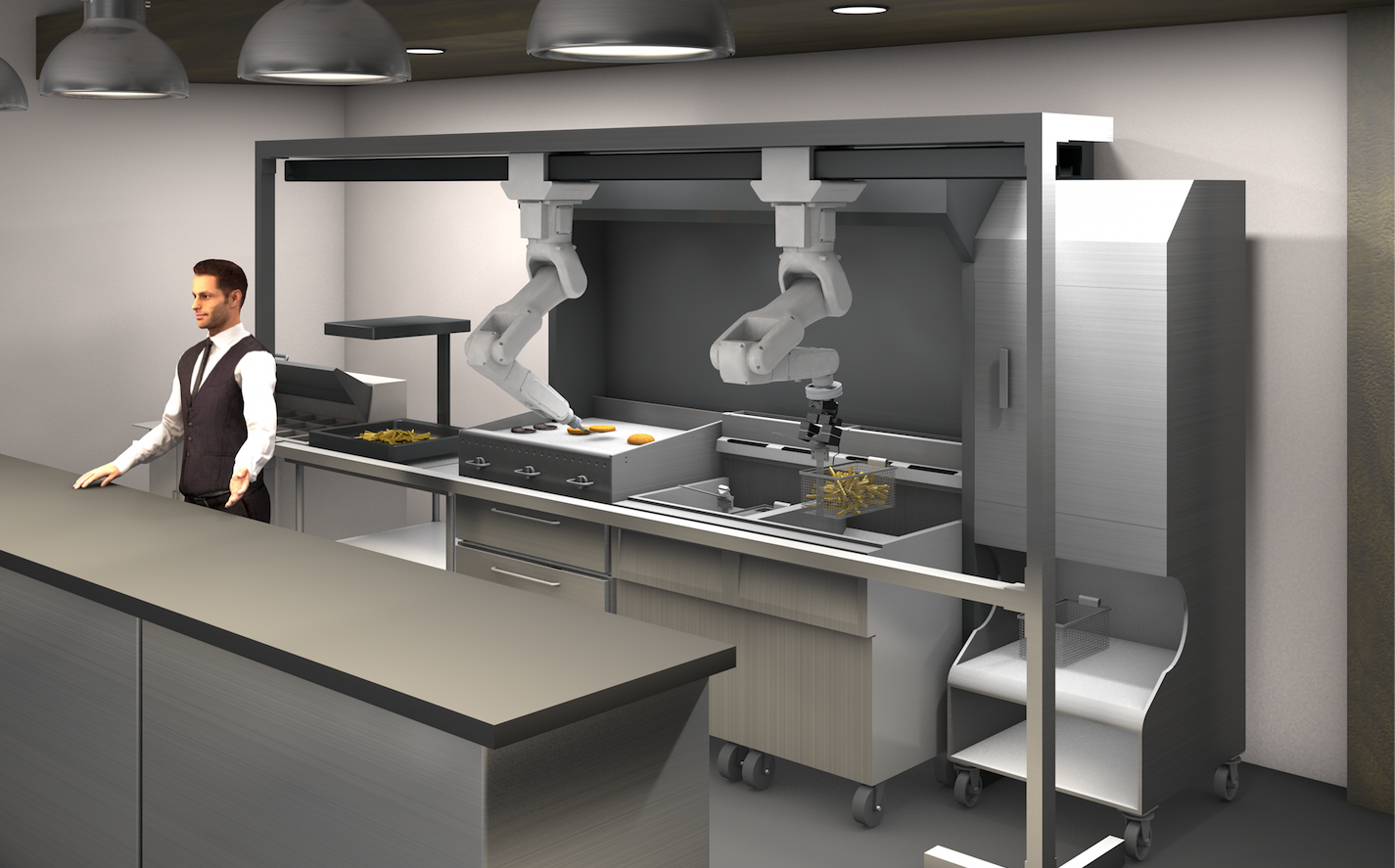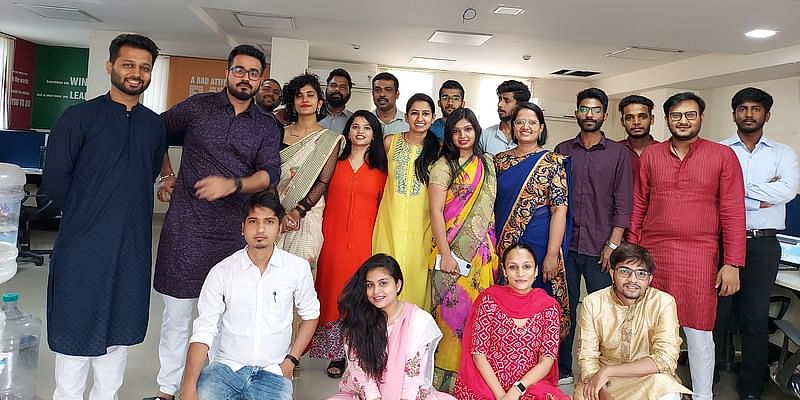Rebel Foods believes that it was born of the marriage of great food and innovative tech.
At present the largest cloud kitchen restaurant chain in India, the company began life as a brick-and-mortar business with one brand, Faasos, in 2011. It soon transitioned all outlets to cloud kitchens and now runs more than 350 cloud kitchens with popular brands such as Behrouz Biryani, Mandarin Oak, Oven Story, and Sweet Truth in India, and a clutch of other brands in the UAE, South East Asia, and the United Kingdom.
Ten years down the line, the Mumbai-based dark kitchen company is keen to take things further by leveraging IoT, AI, and robotics in all its cloud kitchens.
Modern technology, including computer vision and AI, is helping chefs at Rebel Foods to automate the process of cooking, courtesy the intelligent equipment – a robotic wok and dum machine, and automated tawas and auto fryers.
All this automation is part of stage one of Rebel Foods’ tech rollout plan. The intelligent machines have presently been installed in 50 kitchens, and the cloud kitchen operator plans to roll them out in 100 more kitchens in FY22.
Soumyadeep Barman, Chief Product Officer, co-founder, Rebel Foods, says the foodtech startup has solved several problems through technology.
“We created a tech platform that works as the core. Culinary delight and technology are the two big pieces inside our operating system’s puzzle. From procurement and warehousing to supply chain, kitchen ops, and delivery, everything runs on a platform that has been built in-house by our tech and product teams. This platform runs at a base level wherever we operate, be it India, Indonesia, Dubai, UK, or Malaysia, and includes everything from orders and delivery to customer management and learning management,” Soumyadeep says.
The early platform
The Rebel Foods platform has integrated multiple microservices over the last few years. For example, there are microservices for learning management, HR, payroll, or end-to-end kitchen management.
Soumyadeep says: “Our platform is the base layer on which everything else is built. Everything is connected – inventory, procurement, materials, manufacturing, warehousing, supply chain management, kitchens, and delivery. We manage multiple channels for all our brands like Behrouz, Faasos, and OvenStory, which have separate websites and apps, along with a mother app.”
Amidst the COVID-19 pandemic, the cloud kitchen operator put in place several checks and balances in all kitchens. The tech helped check who was handling food, who was entering and exiting the kitchen, and ingredient data of each product that went out.
Rebel Foods kitchens are de-skilled, which means individuals with no real experience can use technology to churn out multiple cuisines. This helps company scale without being dependent on expensive chefs.
The importance of data
The company has been running high-speed kitchens for a while now. But it was data that led Rebel Foods there. Data helped realise that 80 percent of orders were for delivery, and led to the pivot to dark kitchens.
Delivery started with the Faasos brand, and led to the launch of a multi-brand format.
“Our main question was how do we reduce costs? How do we build customer experience? All these questions led to innovation and where we are today. Nothing was forcefully done, but those things came in as levers for us to sustain and great customer experience,” Soumyadeep says.
He adds that de-skilling was an opportunity for the online firm as it operates around 12-15 brands from each cloud kitchen. “We realised de-skilling had to be done. We have a function called Culinary Innovation Centre where we have great chefs. In the entire organisation, we have only 10 chefs who build great dishes that our customers love. We then breakdown each recipe, create processes and SOPs, and give it to the kitchens to deliver. One person who can create a Behrouz Biryani recipe can also do that with OvenStory, Faasos, and so on. Everyone is multi-skilled,” he says.
Smart woks and visual AI
Rebel Foods kitchens are outfitted with learning management systems and smart machines. A display system lets you see recipes and figure out the steps to create a Behrouz Biryani or a Mandarin Oak recipe. The cloud kitchen operator then plugged this learning into automated machines.
A couple of years back, Rebel Foods also set up a Transformer Team, which is tasked with “transforming kitchens” with a mix of the application of robotics and automation. Robotics engineers, mechanical engineers, and mechatronics industrial designers with labs have found their way into the kitchen. The marriage of art and science means machines cannot sustain without chefs and the chefs can’t find their way without the machine/science.
“For example, with Mandarin Oak, we have built a smart wok that is connected to the IoT platform; the AWS team helped with this. We had AWS developers working with Rebel Foods developers to build something that has not been seen in this industry,” he says.
Rebel Foods’ chefs are not specialists in Chinese cuisine, but the machine takes over and eases things. The intelligent wok, which comes with a display, allows chef to do the tossing needed for Chinese cooking based on the display’s instructions. The wok is connected to the Rebel Foods’ IoT platform through gateways.







